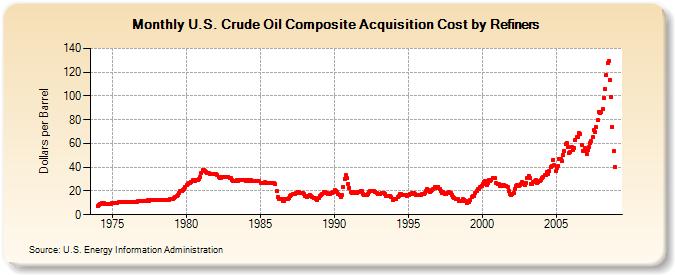According to Toyota Tops List of Cash-for-Clunkers Winners (NY Times), 690,000 new vehicles were purchased with money from the Cash for Clunkers program. On average, new cars got 25 miles per gallon (mpg) while "clunkers" got 16 mpg. If the average person in the US drives 15,000 miles/year, then new cars will save 337.5 gallons of gas a year (937.5 gallons for "clunkers" and 600 gallons for the newer cars).
So did the Cash for Clunkers program pay off? Lets try a back of the envelope calculation.
If we estimate that the "clunkers", without the program, would have been replaced within five years on average, then the total gas saved would be:
690,000 cars x 337.5 gallons saved per year x 5 years = 1,164,375,000 gallons saved
or about 1.16 billion gallons of gas saved.
Since about $2.9 billion was spent, that means that for every gallon saved, it cost the federal government about $2.49. Increasing the average replacement time decreases the cost per gallon, while decreasing the replacement time raises the cost per gallon.
With gas costing $2.62 a gallon on 8/24 (see doe.gov), this is a slight savings. The savings would grow should the price of gas go back to its high point of $4.00 in July 2008 or even higher when peak oil really kicks in.
Some (1 , 2) have estimated the true cost of a gallon of gas to be significantly higher due to such factors as the subsidies the government gives to gas, protecting the oil supply in the Persian Gulf, lost time in traffic and the environmental cost. Estimates of the true cost of a gallon of gas vary between $5 and $15. At those prices, Cash for Clunkers program was quite a good investment.
However, whether the Cash for Clunkers program was as efficient at cutting our oil usage and pollution as other approaches such as home energy efficiency improvements, or increased ride sharing, public transit or bike paths remains to be seen.


